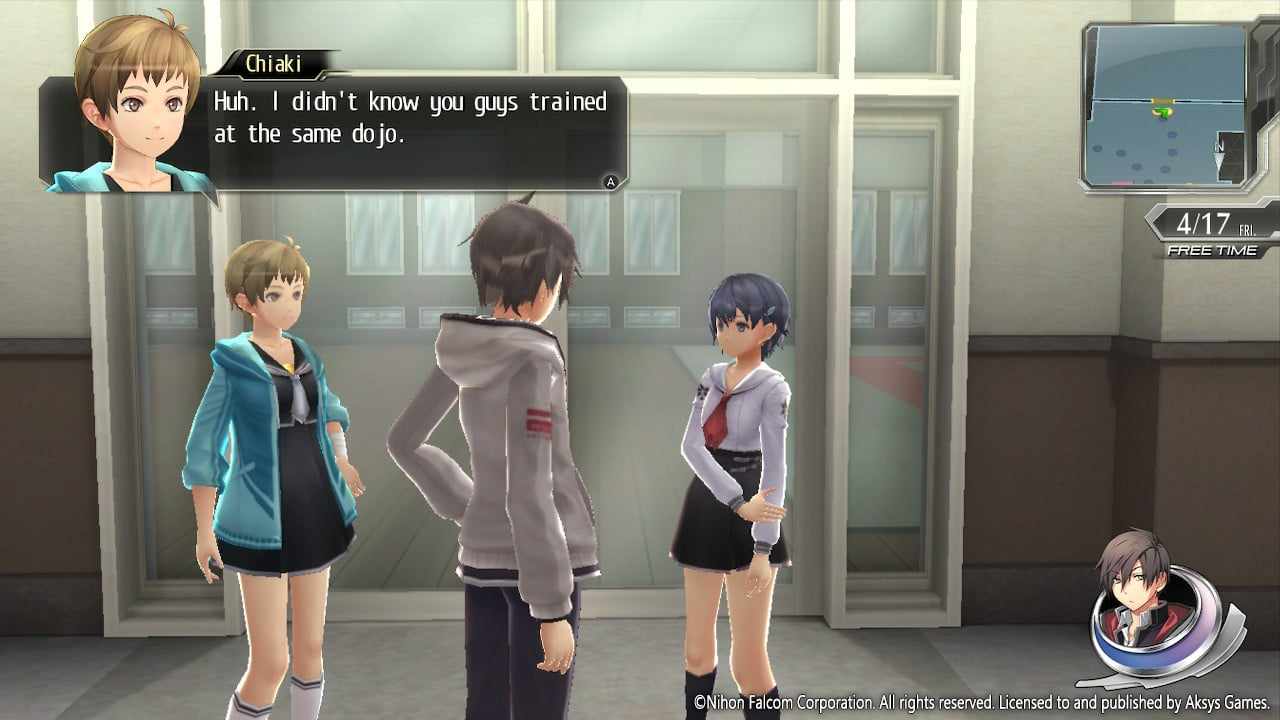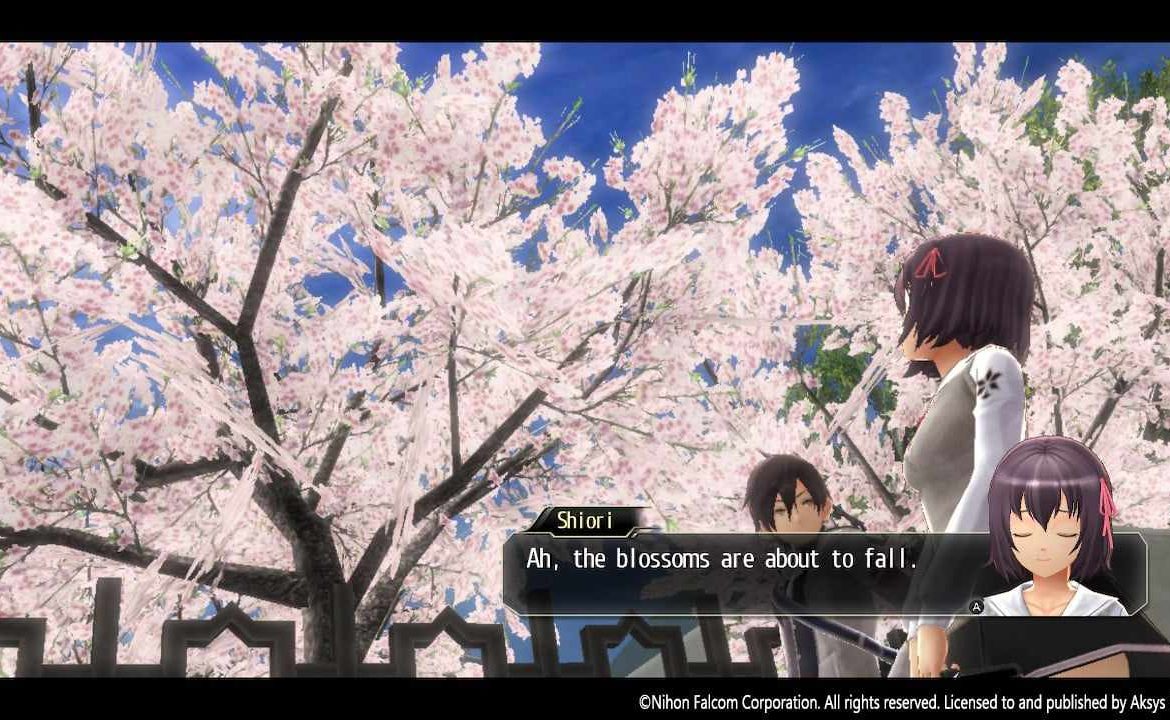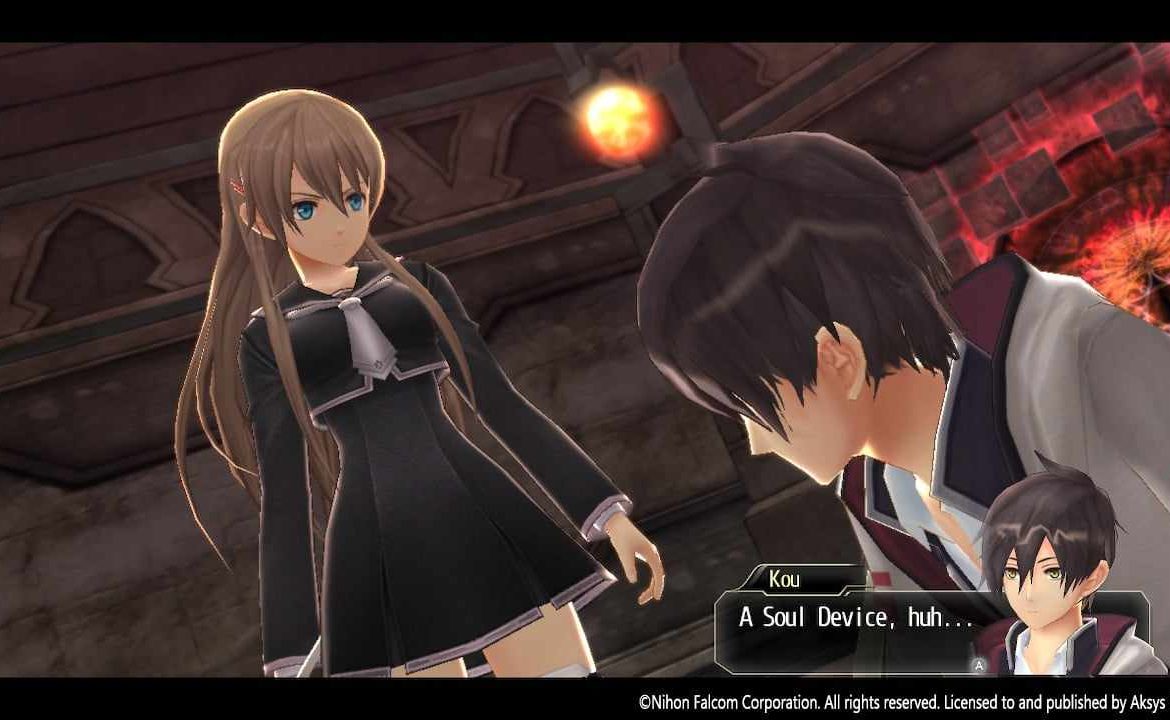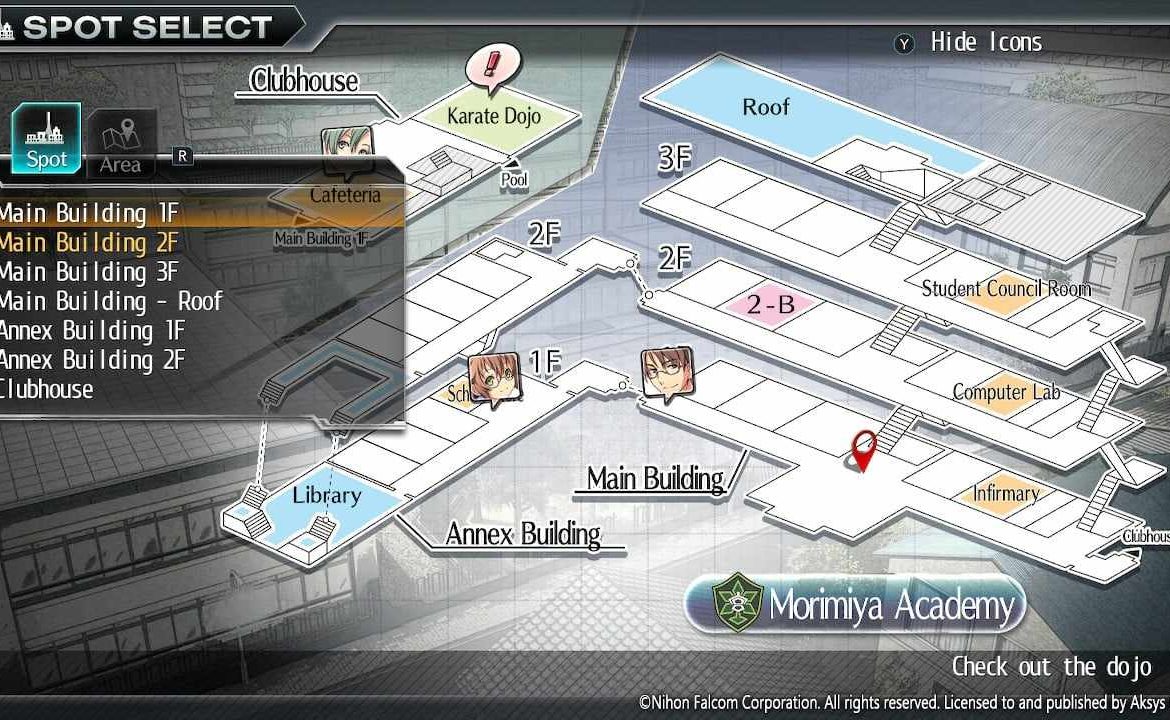You can take the game out of the Falcom (series), but you can’t take the Falcom out of the game. Or something like that. Taking a little break from flagship series Ys and Trails, Falcom turned to its roots and a spin-off series in Tokyo Xanadu. The original Xanadu was a spin-off of the Dragon Slayer series in the 80s (which also spawned the Legend of Heroes, and then Trails), and has barely been touched in twenty years, except for one rare N-Gage title. Seems it was ripe for revival.
Taking masses of inspiration from the Persona series (setting in a high school with dark emotion-based enemies attacking students, heroes with psychic weapons, corridor-crawling, and relationship bonds to say the least) Tokyo Xanadu can feel like a long-lost Persona title at times, but it’s still a thoroughly Falcom game through and through. The same fonts, animation style, writing, graphical limits, you name it – if it’s something that you feel gives Ys and Trails its identity, it’s here in droves too.
Coming out to middling success on the PlayStation Vita in 2015, and then re-released with extras (and the eX+) in 2017 (and other platforms since), Tokyo Xanadu finally finds its way to Nintendo Switch ready for anyone, like me, who was interested to play it ahead of the new Tokyo Xanadu that Falcom announced recently. Seems like a once every ten years kinda series.

Set in a small part of Tokyo called Morimiya City, Xanadu tells the story of Kou and his sudden headlong fall into the world of the shadowy Greeds and portals into the Otherworld. A series of unfortunate (or fortuitous, depending on your mood) instances see him in the wrong place at the wrong time, as fellow students around Morimiya get unceremoniously swallowed by strange warp doors that appear in the real world.
They’ve been taken to the Otherworld by Greeds, emotion-feeding monstrosities that want to eat them. Kou always ends up falling in after them, realising he has a psychic weapon and can fight Greeds, and running into the savvy Asuka who seems to know far more about the Otherworld than him. Slowly, very slowly (because Falcom) Kou learns the ins and outs of the Otherworld, and that Asuka is part of an organisation (cult?) that monitor and fight back against encroaching Greeds and their portals.
From here there’s a lot of relationships, different students getting into emotional situations and being preyed on, Asuka and Kou fighting back and recruiting others, and the slow but sure revelations about Asuka and the Otherworld. If it sounds remarkably close to Persona (especially 3) that’s because it is – a copy-paste of the essential parts of that series, without the depth, clever writing or complexities that make Persona stand out. It meanders about stuck in the bare bones of something, but mostly unable to impart the same drive, purpose or impetus to proceedings as Persona manages.
The story has no real depth and feels like a copy of Persona, without the depth and personality those games have in droves. The characters become likable enough but their thoroughly teenage lives and problems left me cold. By the third chapter, a story should really be in full swing but the tutorials had only just ended and there was no sign of a deeper plot. Holding out hope for it to materialise later was ultimately unrewarded.

Tokyo Xanadu’s gameplay mostly revolves around long, very Falcom-like dialogue sections, exploring a few small locations in Tokyo, and bitesize corridor-crawling combat. The city hubs are bare facades, shop fronts, and streets, and generally just held dull fetch quests, bouncing from shop to shop or back to school. The dialogue is of course where the interest lies, but the questing is not its strength, and it’s the lowest echelon of what Falcom does with fetch quests in Ys and Trails games.
The bitesize corridors that stand in for dungeons in Xanadu feel like a choice due to the handheld Vita being the original system it was designed for. These are thankfully short, but they are not much more than short rat mazes with a few button pushes to open a gate or two before you reach the end. If someone had told me they were procedurally generated, I wouldn’t have been surprised. Their lack of interest makes corridor-crawling a chore from the game’s outset right the way through its entire run. And with a small but apparent need to grind out levels in them, they take a big chunk of the enjoyment from the game.

I wish I could say that the combat is its saving grace, but Tokyo Xanadu’s combat isn’t quite the fast frenetic fun of you’re average Ys game, nor is it more considered like a Trails game. It’s somewhere in-between, and feels floaty and underdeveloped.
The Switch controls don’t lend themselves to fast combat at all. Lock-on was particularly fiddly, as was the dodge roll. Once the tutorials have thrown at least half a dozen different move types at you over the course of a few hours I felt a little overwhelmed by it all, while still somehow finding it too simple. It boiled down to ranged and normal attacks and about four different types of power move, which just felt like far too many. Even a dozen hours in I still couldn’t work out why one of my HUD orbs never seemed to deplete or allow for an attack.
Your attacks, stats, and buffs are governed by attaching elemental orbs to your Xiphone to increase stats on your weapon or moveset. The system is at least simpler than the older Trails games, but still more complex than newer ones, but it will remind you of a combat orbment if you’ve played that series. Talking of Xiphones, there is little to no explanation as to how a smartphone controls psychic weapons or stats increases via apps, to the point Kou even questions it himself. It feels like almost a tongue-in-cheek jibe at Persona’s ubiquitous use of them.
Tokyo Xanadu is unlikely to light up your world graphically, but considering it was made for the Vita and ported, the graphics aren’t that bad. They do the job, but they feel a generation or so behind, and it’s a criticism I’d level at any of the Ys or Trails games too. Musically you’ll find much of the same calibre of soundtrack here as in Falcom’s other work as it’s mostly the same talent working on it. Voiceover that exists is all in Japanese, and I never noticed any option for an English voiceover.

In the end Tokyo Xanadu is Trails by way of Persona, with a bit of Ys combat, ending up derivative of all of them, and not really strong enough in any particular area to carve out its own identity. Its clearest identity is being a thoroughly Falcom game, and that is both good and bad. They are fun and competent, but it doesn’t even attempt to compete with the giants of the genre.
Graphical limitations it may have, but it was developed for the PlayStation Vita, before a handful of ports. Coming out on Nintendo Switch is close to its intended format and style. The graphics don’t look too bad on Switch, and the stage style of dungeons is a far more handheld small-doses type of mechanic.
If you like the Trails and Ys games, Tokyo Xanadu is Persona as if made by Falcom. That might be right up your street. On a good day, it means fun combat and likable characters, but on a bad day, it’s a painfully generic story peppered with some of the dullest corridor-crawling in the genre.

Tokyo Xanadu eX+ is available 25th July 2024 on Nintendo Switch (review platform) and has been for many years on PlayStation 4 and PC.
Developer: Falcom
Publisher: Falcom
Disclaimer: In order to complete this review, we were provided with a promotional copy of the game. For our full review policy, please go here.
If you enjoyed this article or any more of our content, please consider our Patreon.
Make sure to follow Finger Guns on our social channels –Twitter, Facebook, Twitch, Spotify or Apple Podcasts – to keep up to date on our news, reviews and features.
